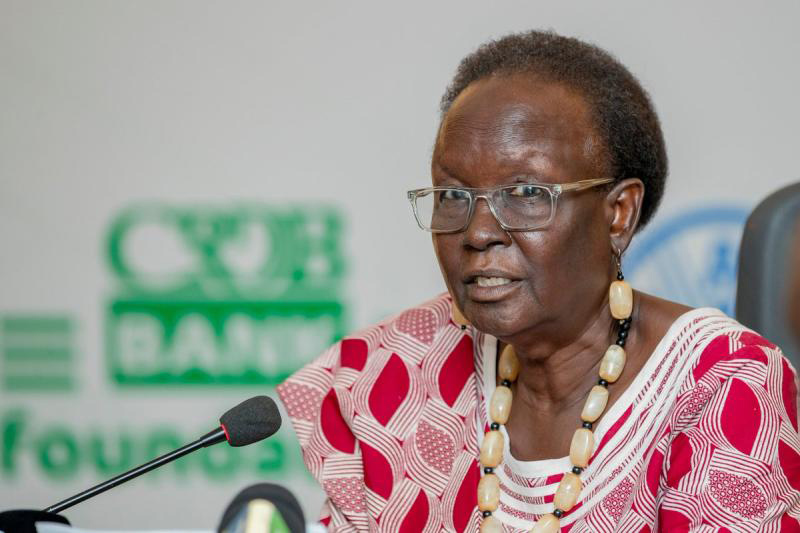 FAO Kenya Representative ad interim Nyabenyi Tipo/HANDOUT
FAO Kenya Representative ad interim Nyabenyi Tipo/HANDOUT
Kenya is stepping up efforts to control the fall armyworm (FAW), a destructive pest threatening maize and over 80 other crops.
This is through a partnership with China and the Food and Agriculture Organization. FAO Kenya Representative ad interim Nyabenyi Tipo said the pest has severely affected smallholder farmers and poses a threat to national food security.
“The main challenge has been the lack of knowledge among farmers and over-reliance on chemical pesticides,” she said.
To address the issue, FAO launched a global initiative in 2019 to help countries manage the pest. As part of this, a South-South and Triangular Cooperation project between Kenya, China and FAO is being implemented from 2023 to 2025.
The Kenya Agricultural and Livestock Research Organization (Kalro) is also involved as a local research partner.
Three trial sites, Embu, Kitale in Trans Nzoia and Mabanga in Bungoma have been set up to test biological control methods, improve early warning systems, and build farmer capacity.
“We began by creating an early warning system so farmers can detect FAW in the field,” Tipo said.
“We’re also promoting the use of natural enemies to control the pest and this knowledge is being shared through farmer field schools.”
She pointed out the importance of reducing pesticide use due to health risks and said biological methods offer safer, more sustainable solutions.
“Without such partnerships, we cannot achieve food security or transform our agri-food systems,” she added.
“FAW is not a country-specific problem, it is global. This project allows us to tap into international expertise, including support from Chinese experts.”
Tipo said because maize is seasonal, FAW survives on other crops, making year-round control efforts essential. However, the project’s integrated pest management system is already showing promise in reducing FAW populations.
“We hope that in the future, more countries will unite to fully eradicate FAW. For now, our focus is on managing and containing it,” she said.
FAO Senior Agriculture officer in Pest and Pesticide Management Dr Baogen Gu said the project is also being implemented in Ghana. It aims to scale up good agricultural practices and develop sustainable FAW monitoring and management systems.
“Through South-South Cooperation, we bring advanced yet practical technologies, integrate them with local practices and train farmers to use them effectively,” Gu said.
He explained that China, after experiencing FAW invasion in 2019, developed several control methods including biopesticides, resistant crop varieties, physical traps and radar-based monitoring systems.
These innovations are now being adapted to African contexts.
“In China, most farmers are smallholders, just like in Kenya and Ghana, so these practices are easily transferable,” he added.
“There’s high potential for mutual learning and benefit.”
FAO Kenya’s Programme Manager for Resilient Livelihoods and Climate Change, Barak Okoba, said FAW is a regional problem and understanding its movement patterns is key.
“We’re supporting Kenya in strengthening surveillance and early warning systems. Once we can accurately map and predict FAW infestations, we will be in a better position to prevent crop damage,” he said.
The trial sites in Embu, Bungoma, and Kitale are helping scientists and extension officers track how FAW moves between maize and other plants.
“Even at this early stage, we have seen that farmers can use simple, locally available materials for pest control instead of chemicals,” said Okoba.
“This approach is cost-effective and environmentally friendly.”
He said the shift from chemical to biological control is crucial for protecting both human health and the environment.
“We are encouraging farmers, even those with just a quarter-acre, to adopt sustainable practices that secure food for their families without expensive pesticides,” he said.
















